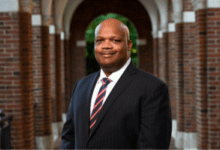
Accelerate[ED]: Seamless Pathways to Degrees and Careers
What if students in every high school had the opportunity to take an additional year of courses related to a career of their interest, earn enough college credits to finish an associate degree by year 13, and be well-prepared for a great job or further education towards a bachelor’s degree — all at no cost?
This vision is possible, but unfortunately millions of students currently lack access to quality career-connected learning opportunities and supports that allow them to make informed decisions about their future and successfully transition from high school to postsecondary and into the workforce.
To meet this challenge, K-12 districts, higher education institutions, employers, non-profits and community leaders across the country are working together to co-design pathway models that start in high school and offer integrated career-connected courses and work experiences that lead to a postsecondary credential of value by the end of high school.
As students grapple with the impacts of COVID-19 on their education journey, now is the time to accelerate this work and extend these opportunities to all students, especially Black and Latino students and students from low-income backgrounds who have historically had less access to these types of programs.
That’s why The Bill & Melinda Gates Foundation is proud to announce a new initiative called Accelerate[ED]: Seamless Pathways to Degrees and Careers.
Accelerate[ED] is a grant opportunity that seeks to bring together 12 Regional Design Teams of stakeholders from the K-12 and postsecondary systems to:
1. Design accessible career pathways that support students in earning 30 college credits by the end of high school, and;
2. Guide students into career-aligned courses, leading to an associate degree by the 13th year.
Frontline Solutions, on behalf of the Bill & Melinda Gates Foundation, is requesting proposals from organizations engaged in scaling career connected accelerated postsecondary pathways efforts at the regional and state level with a focus on serving Black and Latino students and students from low-income backgrounds. These pathways should be aligned to regional workforce sectors that have strong demand and paths to economic mobility.
Accelerate[ED] will support up to 12 regional design teams, led by regional intermediaries, with planning grants to design a large-scale pathway strategy for their region. Design teams will receive up to $175,000 in grant funds to support their participation and planning activities.
Learn more about this grant opportunity here.










